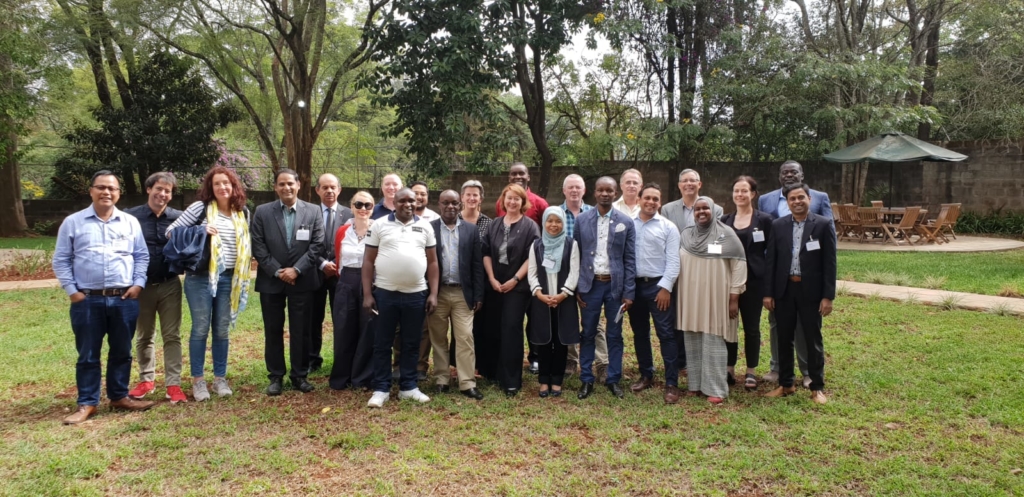What will Sphere be like in 2025? Looking ahead to the future of humanitarian standards

The Sphere members who attended the General Assembly in Nairobi. Photo: R. Benicchio/Sphere
Sphere members gathered in Nairobi last month to attend the annual General Assembly. The agenda included a discussion of the challenges facing the humanitarian sector, and the ways in which humanitarian standards and the Sphere community can best support it in the years to come.
The General Assembly is Sphere’s highest decision-making body, currently made up of 40 member organisations with voting rights. This was the first opportunity for them to contribute to strategic discussions on Sphere’s priorities for the next five-year planning period. They will be consulted at least twice more over the next 12 months as the strategic plan is drafted and finalised.
The participants discussed how to build on Sphere’s achievements over the past five years, from becoming an independent organisation to launching a new Sphere Handbook edition and opening up its membership to organisations and individuals. They considered some of the important changes that will shape tomorrow’s humanitarian sector and how Sphere should respond to them. Issues that arose include new players in the sector, coordination with development stakeholders during protracted crises, resource availability, digitalisation and data protection, localisation, and recalibration of power structures or safeguarding.
The rest of the meeting was dedicated to administrative issues, including review and approval of the annual report, financial statements and audit report. The participants also reported on local Handbook launch events they had organised or contributed to in more than 20 countries, and the key ideas that emerged from them.
- Read Sphere’s current strategy, Sphere 2020
- Learn more about becoming a Sphere member
